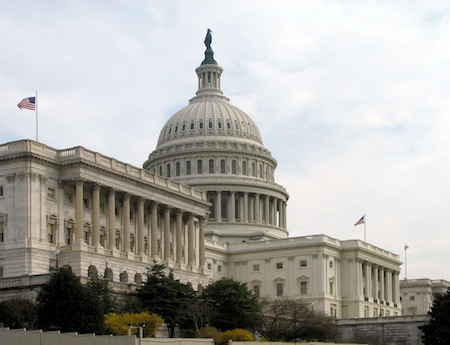CPB Makes Case On Hill for Funding
The smarter way to stay on top of the multichannel video marketplace. Sign up below.
You are now subscribed
Your newsletter sign-up was successful

Corporation for Public Broadcasting president Patricia Harrison was on Capitol Hill Tuesday to pitch full funding for noncommercial TV and radio—even as President Donald Trump has proposed cutting all federal funds—but to some Republican pushback over a familiar topic: alleged liberal bias, though to some encouraging words from the Republican chairman of the subcommittee.
She also signaled that FCC spectrum auction funds wouldn't be a big boon for noncommercial stations looking for funding elsewhere.
Harrison asked for full funding for 2020 (the service is forward-funded to attempt to insulate it from politics), $55 million for 2018 for interconnection systems and $30 million for the Ready to Learn program at the Department of Education.
The President proposes the budget, but Congress has to approve that budget, so the cut is not a fait accompli.
Harrison emphasized the educational aspects of noncommercial media, saying it was at the "heart" of its mission.
"Through the nearly 1,500 locally owned and operated public radio and television stations across the country, public media reaches 99 percent of the American people from big cities to small towns and rural communities. At approximately $1.35 per citizen per year it is one of America’s best infrastructure investments—paying huge dividends in education, public safety and civic leadership for millions of Americans and their families," she said.
She also talked about noncoms' mission of fact-based journalism in a world of "fake news."
The smarter way to stay on top of the multichannel video marketplace. Sign up below.
But politics has rarely been divorced from the CPB funding process, and that was the case in the hearing.
Rep. Andy Harris (R-Md.)—a member of the House Appropriations Committee's Subcommittee on Labor, Health and Human Services, Education and Related Agencies, which was holding the hearing on CPB's appropriation—said that noncoms were the equivalent of a government-funded press and that in some cases--he conceded a small minority--it had a political agenda that went beyond education.
He said if CPB expected to get any money from Congress, it needed to get rid of as many vestiges of that agenda as possible.
He cited as an example a noncom program in his own state that talked about supporters and opponents of "marriage equality." He said that term is biased, and he could just see the ads targeted to him if he voted against something billed as equality that he was opposed to.
He said that 99% of the time, noncoms "got it right," but the 1% of bias poisoned the well.
Harrison said she took his point, but that CPB's job was twofold, to provide a firewall between content producers and government and to seek fairness and balance. She said that overall, she thought CPB had done a good job.
Harrison said in her written testimony that "the vast majority of public television stations did not participate in the spectrum auction and will not receive auction proceeds, neither will CPB nor will PBS."
She also said that it was not clear that the $1.75 billion Congress has set aside for the post-auction repack will be enough to cover the move, and there is no compensation for translators needed for changing channels in the repack, which she said places "an undue financial burden on those stations since they will assume the extra expense as they seek to ensure universal access."
Commitee chairman Tom Cole (R-Okla.) didn't sound like someone who wanted to axe the funding for CPB. He did point out
that when Harrison was co-chairman of the Republican National Committee he was chief of staff.
In closing the hearing, Cole said: "If you look over a 50-year [CPB] history it is a pretty impressive record of enriching the content of public dialog, opening doors to communities that don't often have these kind of opportunities and living within what is by what is by any measure at the federal level a comparitavely modest budget, which you manage to leverage and multiply many times over."
Contributing editor John Eggerton has been an editor and/or writer on media regulation, legislation and policy for over four decades, including covering the FCC, FTC, Congress, the major media trade associations, and the federal courts. In addition to Multichannel News and Broadcasting + Cable, his work has appeared in Radio World, TV Technology, TV Fax, This Week in Consumer Electronics, Variety and the Encyclopedia Britannica.

